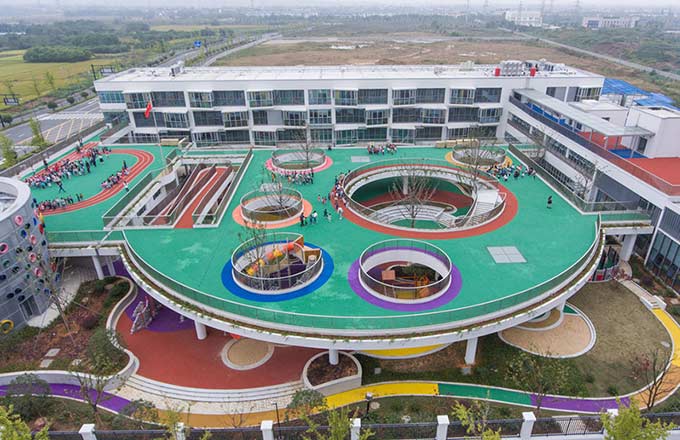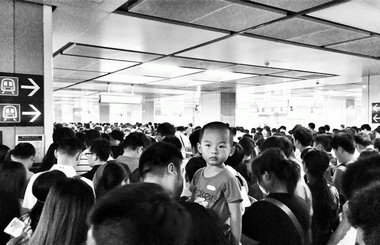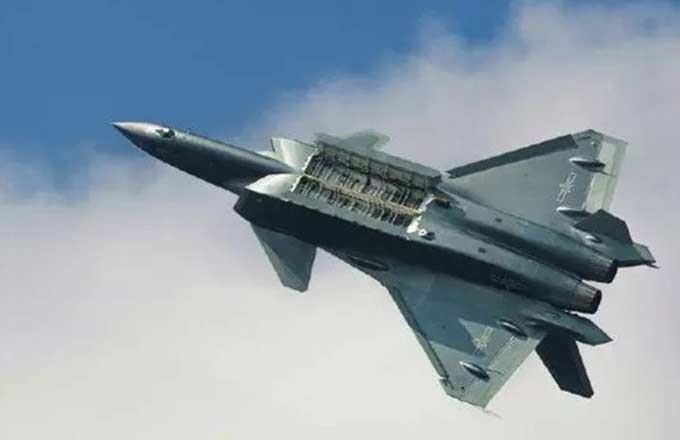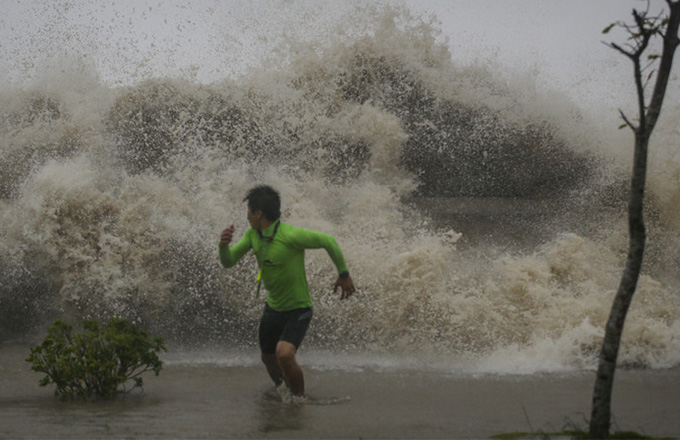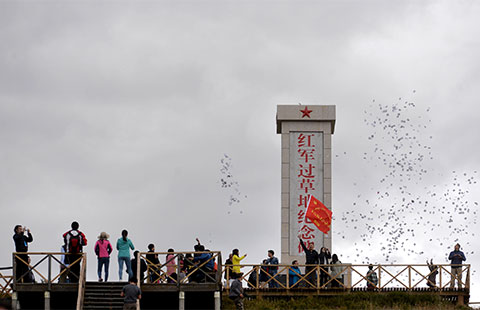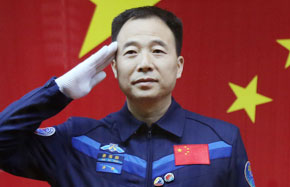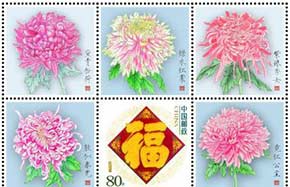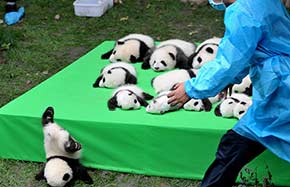Shenzhou XI astronaut to spend 50th birthday in space
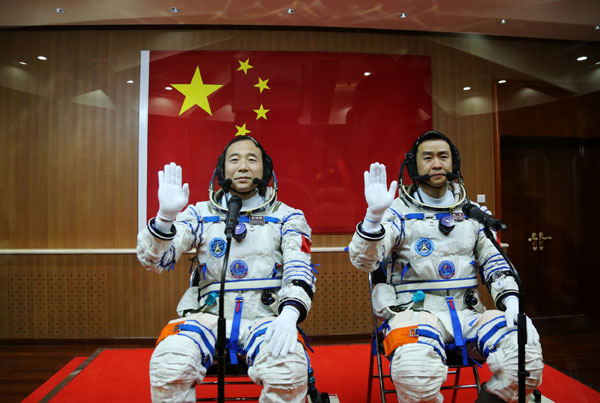 |
|
Chinese astronauts Jing Haipeng (right) and Chen Dong at the Jiuquan Satellite Launch Center in northwest China on October 17. [Photo/Xinhua] |
Raise silkworms in space in experiment designed by HK students
One of the striking characteristics of Shenzhou XI mission is to perform many tests and experiments, dozens of which require astronauts to do them by themselves.
Raising silkworms is one of them. It is based on the design of Hong Kong students, who asks astronauts to observe whether silkworm will spin silk in space the way they spin on earth and whether they will cocoon themselves.
Jing and Chen therefore learned how to raise silkworms and Jing thinks it is very interesting.
They will also carry out some professional experiments, including scans of internal organs.
"I spoke with a doctor and he told me you need at least a year of training before you can conduct a B-scan on a patient," Jing said, referring to a technique in which structures of the body are visualized by recording echoes of ultrasonic waves directed into tissue. "We were trained for less than six months, and we're about to do it on our own bodies-with no gravity."
The resulting images and data will be sent back to headquarters for experts to analyze, he said, adding that the purpose is to see how the cardiovascular system is affected in a zero-gravity environment."
He said that one of the goals of Shenzhou XI mission is to evaluate astronauts' physical signs and living condition.
To finish all these tasks, astronauts underwent extensive training in operating scientific experiments. "We are not scientists, but we will realize scientists' ideas and goals through our hands," said Jing, adding that these tests and experiments will pave way for the long-term manned flight of space station in the future.
Meet family through VR technology
Three weeks before the mission, the family members of Jing and Chen still did not know anything.
Chen Dong has been a pilot for many years before joining the space team. He got acquainted with his wife several years ago and now has a pair of five-year-old twin sons.
One-month mission is not the longest time Chen has stayed away from home. When he was a pilot, he once did not come back home for half a year during a mission. He described the experience as "no seeing, no missing".
But with the help of Virtual Reality (VR) technology, astronauts will meet their family during leisure time. "If I see them (family members), it will be different somehow," Chen said.
For Jing, he looks very calm. In his first space mission on Shenzhou VII, his wife was so nervous that she almost did not sleep during those three days. Now that it is his third mission, his wife has got used to it.
During the mission, the team on the ground will visits Jing and Chen's family. "I talked with my wife and I think she will not worry much," said Chen Dong with a smile.




